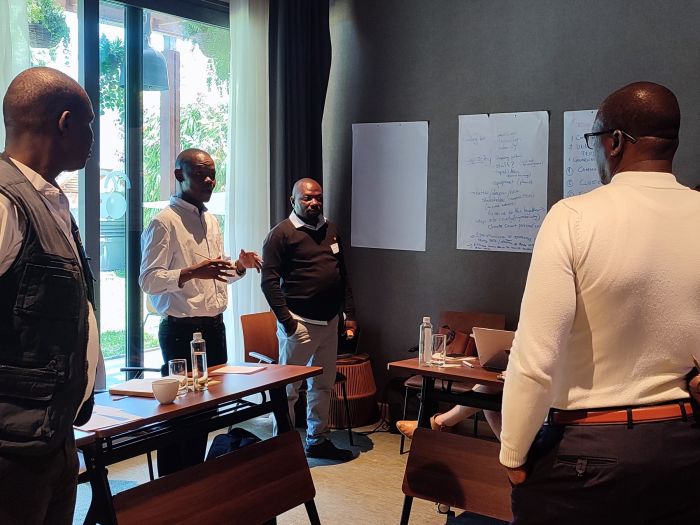In Nairobi, account manager Margreet and trainee Anne led a vital workshop aimed at expanding Kenya’s agroforestry efforts. With the country’s rich soils and stable climate, the goal was to bring eight local partners together to drive collaboration and set a clear path for growth – creating a scaling plan that aims to support 1.5 to 2 million Kenyan farmers.
Setting the stage
Our ambition to spread agroforestry throughout Kenya called for a coordinated effort among diverse local partners, each with the potential to contribute significantly to the country’s agroforestry landscape. With the help of Open Capital, we invited around 8 local partners and hosted a workshop. Prior to the workshop, Open Capital kicked off with a survey and data analysis to understand where our partners stood and where we could grow together – crucial prep for a successful workshop.
A day of insights and collaborations
The workshop featured a vibrant mix of sessions to align with each other, focus on the agroforestry opportunity in new regions, and understand the current reach in impact. With over 46,000 farmers supported, 24,000 hectares covered and more than 38,000 CRUs issued, the potential for further growth was evident. Yet, discussions also went beyond numbers, diving into how partners could support each other to overcome common scaling barriers such as land ownership issues, financial constraints, and knowledge gaps.
A bottom-up/top-down approach was used to map out regions ecologically suited for agroforestry and align these with the ambitions of our local partners. This dual perspective ensured that the strategy was grounded in practicality while ambitious in scope.

Overcoming challenges together
One of the workshop’s most significant outcomes was the shift in mindset among the local partners. Realizing that the scope for scaling was broader than initially thought, they moved from a mindset of limitations to one of possibilities. The discussions around overcoming overlap issues with other partners and the willingness to form consortia highlighted a departure from seeing each other as competitors to valuing each other as partners.
Tangible outcomes and forward momentum
By the workshop’s end, the enthusiasm and ambition had visibly grown. Local partners set a new collective target: to support 1.5 million farmers by 2030, a substantial increase from the initial goal of 730,000. And so the workshop’s success has laid the groundwork for a detailed scaling strategy report that includes clear objectives, a mix of approaches, and a plan for government involvement and addressing blind spots. It’s wonderful to see how just one day of collective enthusiasm and commitment can set such a solid foundation for future growth and we’re excited to move ahead.

Spotlight at the Kenya Carbon Markets Conference
The workshop’s efforts were further highlighted at the Kenya Carbon Markets Conference 2024, where Martine Jansen, Head of Partnerships, presented the scaling plan. Martine: “We were very honored to be invited by the Office of the Special Envoy for Climate Change in Kenya to speak at the inaugural Kenya Carbon Markets Conference 2024 as a showcase on stimulating sustainable agricultural practices. During the conference, it became clear that Kenya is serious about creating an enabling environment to make carbon markets work. We are very keen to work together with local stakeholders to ensure smallholders are part of the solution and can benefit from sustainable agricultural practices and carbon income at scale.”
About Acorn
We help support smallholder farmers in developing countries transition to agroforestry. Together with local partners, we facilitate the funding and training needed by farmers to start their agroforestry transition. Transforming the sequestered CO2 through agroforestry into Carbon Removal Units (CRUs), we offer carbon credits to responsible corporates to help them reach their climate goals. The growth of the trees is measured with satellite imagery, AI and LiDAR, and certified by ICROA-accredited Plan Vivo.
With 80% of the sales revenue going directly to the farmers, it creates an additional income stream and helps them adopt a more climate-resilient way of farming that improves food security, biodiversity, and financial independence.

Subscribe to our newsletter
Stay updated on our Acorn activities and the latest carbon news